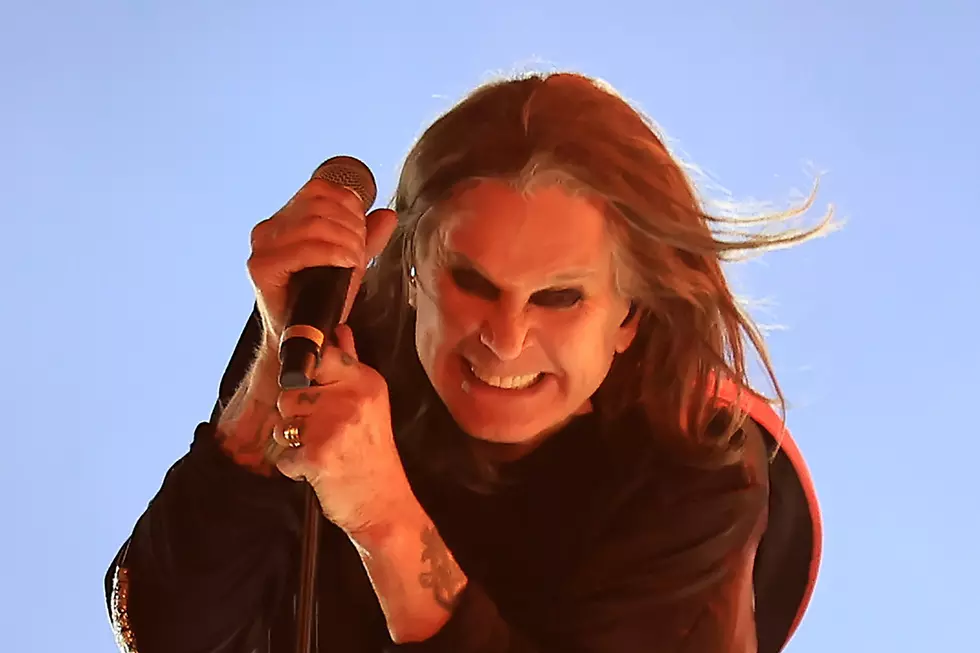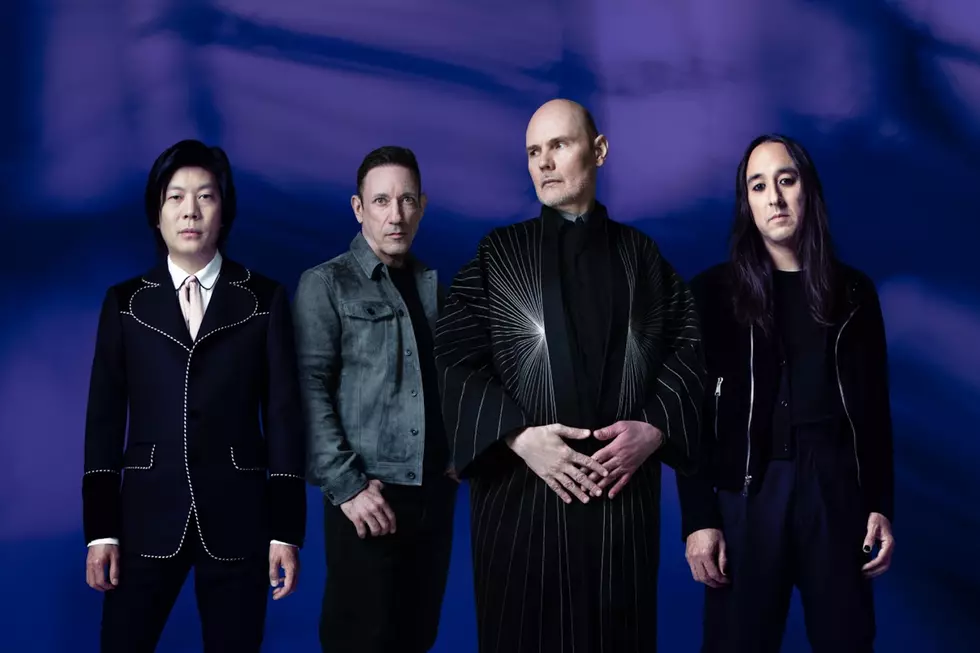
27 Years Ago: Nirvana Shun Outside Pressure and Release ‘In Utero’
So what do you do when you’ve become the biggest band on the planet and have been credited with the launch of a movement that has eclipsed everything else in the music world? For Nirvana, they dug into their punk ethos, shunned outside interference and made the album they wanted to make with 1993’s Nevermind follow-up, the decidedly darker and more raw third studio album, In Utero.
As you might expect, the success of Nevermind provided plenty of offers and opportunities for the band, but by the fall of 1992, the group decided to start working on material for their follow-up album. First came a demo session in Seattle in October of 1992 with Jack Endino where they began recording instrumental pieces, including what would become the future In Utero tracks “Rape Me” and ���Dumb.” A second demo session would follow in Rio de Janiero, Brazil, with Craig Montgomery in January of 1993 where the lead single “Heart Shaped Box” would begin to take shape. Though Endino’s name was eventually mentioned as a possibility, the group eventually decided upon Steve Albini to produce their new album, packing up and heading to Pachyderm Studio in Cannon Falls, Minnesota, for two weeks in February 1993 to record what would become the In Utero album.
Speaking with Request, Kurt Cobain revealed his admiration for Albini’s work on Pixies’ Surfer Rosa and The Breeders’ Pod among the reasons for choosing the Chicago-based producer. The singer was also interested in capturing a more raw sound, hoping to separate the band a bit from some of the poppier sounds of Nevermind’s breakthrough. Cobain had told Rolling Stone that he felt that Nevermind was more “one dimensional,” and reiterated to author Jim DeRogatis that while the label was hoping for something similar, he’d rather not repeat himself. “This is exactly the kind of record I would buy as a fan, that I would enjoy owning,” stated Cobain.
Heading off to Minnesota, the band stayed at a house located on the studio grounds during the sessions and limited outside interference. It was a quick two week recording session for In Utero, as bassist Krist Novoselic recalled that the snow-filled environment left time for little else than work. Drummer Dave Grohl told Rolling Stone in a piece reflecting on the album’s anniversary, “We blazed through In Utero. I was done after three days. I had 10 fucking days to sit in the snow, on my ass with nothing to do.”
Cobain was quoted by biographer Michael Azerrad as stating that the In Utero sessions with Albini were “the easiest recording we’ve ever done, hands down,” while Albini recalled part of that coming with the band, and in particular Cobain’s vision for the record. While the sessions seemed to move forward unencumbered, there were some issues that arose post recording. Reportedly, the label wasn’t entirely thrilled with the record, and the band would eventually agree to remix the singles with Scott Litt after Albini chose not to alter his production for the record.
"[Cobain] wanted to make a record that he could slam down on the table and say, 'Listen, I know this is good, and I know your concerns about it are meaningless, so go with it.' And I don't think he felt he had that yet,” said Albini of the band's decision to remix some of the songs.
With the album complete, it was time to release some music. First up for Nirvana was “Heart-Shaped Box,” the lead single from In Utero. The song’s title came from a present Cobain’s wife Courtney Love had given him, but the lyrical content was partly inspired by a documentary the singer had watched about children with cancer. “Anytime I think about it, it makes me sadder than anything I can think of,” stated Cobain to biographer Michael Azerrad. Grohl recalls Cobain bringing the song to the band and it starting with a jam. “We would get into this dynamic, getting loud, then quiet, then loud,” said Grohl of the jam. Despite some initial troubles finding the song, once Cobain added a vocal melody, it started to take shape. With “Heart-Shaped Box” hitting radio in late August, the song quickly rose up the charts, hitting No. 1 at Modern Rock radio and No. 4 at Mainstream Rock radio, giving the band a boost ahead of the In Utero album’s Sept. 21, 1993 release.
In addition, the band also got a boost for the song out of their music video. Tying in some with the medical theme of the In Utero album art, the Anton Corbjin-directed clip utilized Cobain’s video treatment. The video would go on to win the MTV Video Music Awards honor for Best Alternative Video.
Nirvana, “Heart-Shaped Box”
With Nirvana preparing for a European tour, the band’s label issued “Rape Me” and “All Apologies” as a split single in the U.K. in December of 1993. “Rape Me” had already garnered some attention for its controversial title. “’Rape Me’ is an anti-rape song, written from the point of view of the victim,” explained Cobain to Spin. “It’s like she’s saying, ‘Rape Me, go ahead, rape me, beat me. You’ll never kill me. I’ll survive this and I’m gonna fucking rape you one of these days and you won’t even know it.” Cobain found a bit of a double meaning for it as well, likening it to how the media had torn apart his own life with intense scrutiny during the band’s rise to fame.
The band had intended to play “Rape Me” at the 1992 MTV VMAs, but the network insisted on “Smells Like Teen Spirit” instead. At the beginning of their performance, Nirvana played a few seconds of the song, before adhering to MTV’s request. The song eventually did receive network TV play as it was one of two In Utero tracks performed during their 1993 Saturday Night Live appearance.
Nirvana, “Rape Me”
As for “All Apologies,” it gained greater acclaim after its inclusion in the band’s MTV Unplugged in New York performance. This was one of the tracks remixed by Scott Litt, with Cobain revealing he felt the vocals weren’t loud enough. The track’s origins dated back to 1991 when the band first recorded it in a Seattle studio, but it never made it to album until In Utero. The song would eventually climb to No. 1 on the Alternative Airplay chart, while hitting No. 4 at Mainstream Rock radio.
Nirvana, “All Apologies”
Nirvana had intended to go deeper into the record, but when Kurt Cobain died by suicide in April of 1994, the record label decided not to push ahead with “Pennyroyal Tea,” which was meant to be the third single from the album. Cobain had told biographer Michael Azerrad, “The song is about a person who’s beyond depressed; they’re in their death bed, pretty much.” The title "Pennyroyal Tea" comes from the herbal abortive that was supposed to help with digestion. Cobain’s own stomach issues had been well documented over the previous year.
The In Utero album was also packed with stellar deeper cuts. The poppier “Dumb” got more attention with Nirvana’s MTV Unplugged in New York, while the album opening “Serve the Servants,” the aggressive “Scentless Apprentice,” the chaotic “Milk It” and “Frances Farmer Will Have Her Revenge on Seattle” also have carved out their place at the table in Nirvana’s history.
The months after the album release were quite trying for the group. Walmart and Kmart initially refused to sell the album fearing backlash over the album artwork and a certain song title, leading the label to rework the packaging. Returning to the road in the fall of 1993, the touring support for the album was curtailed in early 1994 when Cobain had a drug overdose in Rome. He entered rehab, but later went missing and on April 8 was found dead in his Seattle home.
Given Cobain’s death in the midst of the In Utero album cycle, the record may have never fully gotten its due. Speaking with Rolling Stone, Dave Grohl stated, “There are a few ways you can look at it. You can describe it as a remarkable achievement. You can also remember it as a fucked up time.” The drummer added that it’s often difficult to assess the record without attaching Cobain’s death to some of the lyrics, but that it should be viewed minus those associations.
From a statistical standpoint, In Utero arrived at No. 1 on the Billboard 200 album chart, selling 180,000 copies its first week. The album has since gone on to be certified five times platinum by the RIAA. From a historical standpoint, “Heart-Shaped Box” and “All Apologies” remain the biggest hits from the record and the album received a Best Alternative Album Grammy nomination. From a critical standpoint, In Utero remains a highly under-appreciated album, with Nirvana bucking immense pressure to replicate Nevermind’s success and delivering an artistic statement that deserves to stand on its own beyond its predecessor's shadow.
Top 90 Hard Rock + Metal Albums of the '90s
More From 95 Rock










